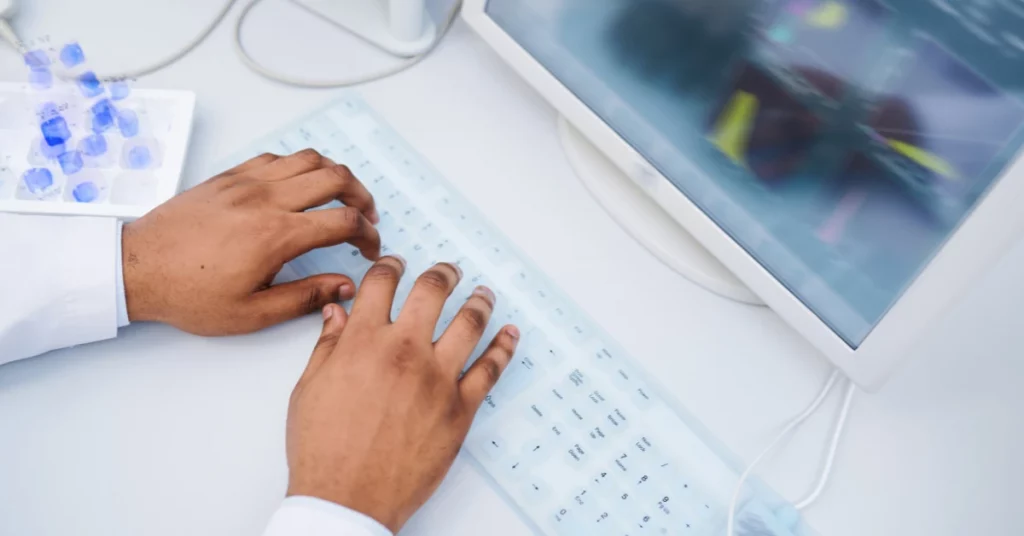Genetic testing is an important part of the fertility and egg donation process. Your egg donor will undergo genetic testing prior to beginning her egg retrieval cycle to ensure that she is a good match for your family.
Why are egg donors genetically screened?
Egg donors go through genetic screenings to ensure they meet the required criteria for egg donation. This screening will include both a family history assessment and genetic carrier screening. The goal of the screenings is to provide clinics and agencies with the information they need to determine whether an individual is a candidate for egg donation, and help families decide whether she is the right egg donor for them.
What does the family history cover?
The egg donor will fill out a questionnaire about any family health conditions. These questionnaires are typically limited to first-degree family members and grandparents, and the results will be limited by each individual’s knowledge of their family medical history.
What conditions should be avoided when choosing an egg donor?
ASRM guidelines state that egg donors and first-degree family members should be free from major malformation with multifactorial or polygenic inheritance, known chromosome abnormalities, and mental retardation of unknown etiology. Other conditions will be discussed with your genetic counselor.
Why do genetic screenings for egg donors matter?
The goal of any assisted reproductive process is to help hopeful parents have a healthy child. Genetic screenings are an important part of this step, to help ensure a child born through egg donation is as protected as possible against serious and life threatening conditions.
What do we do if the egg donor or sperm contributor is a carrier for a genetic condition?
We are all carriers of something, so the genetic screening will simply help you avoid serious and life threatening conditions. Your genetic counselor will walk you through the meaning of all results and how to consider any carrier status you may discover.
Curious to learn more about egg donation genetic testing? Read our interview with genetic counselor Amy Vance.


